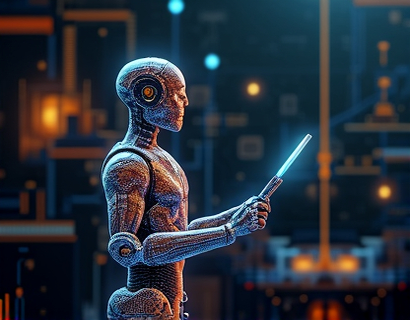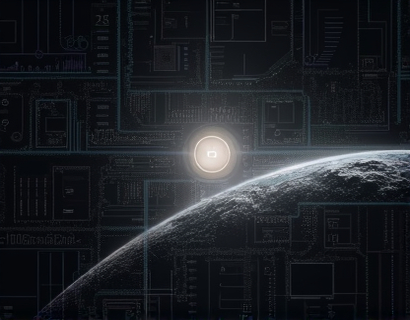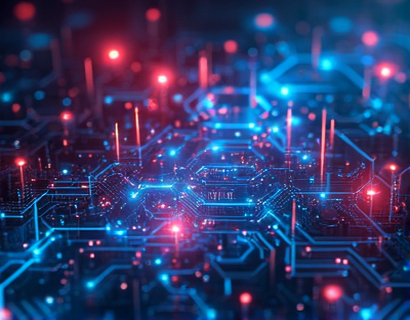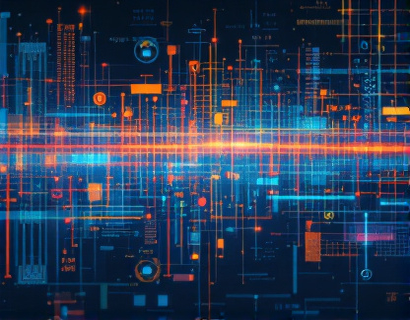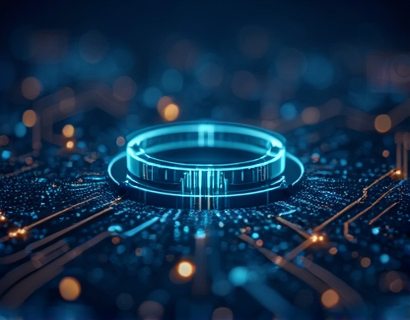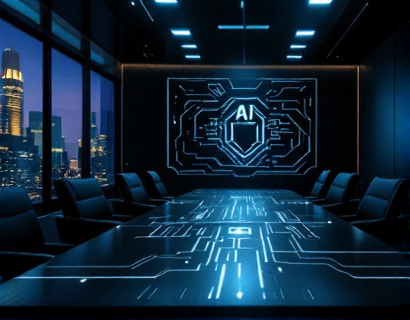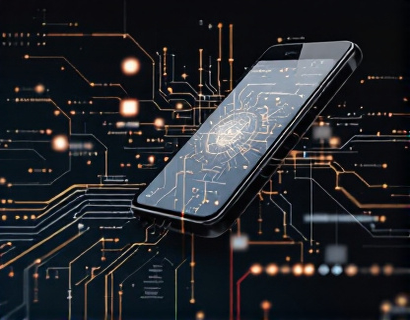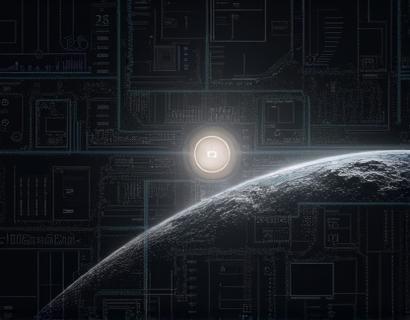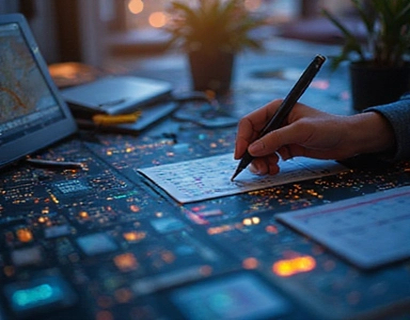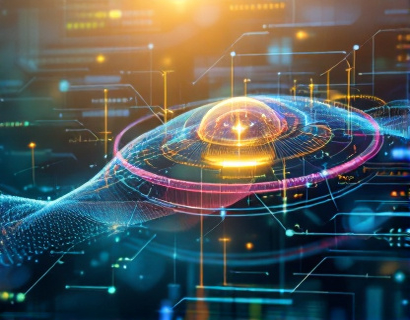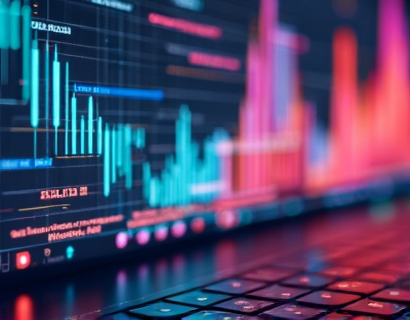Exploring the Synergy of Crypto and AI: Pioneering Digital Transformation
The intersection of cryptocurrency and artificial intelligence (AI) is giving rise to a new era of digital transformation. This fusion is not only redefining how we interact with digital technologies but also enhancing the efficiency, security, and user experience across various sectors. As we delve into this topic, it's essential to understand the foundational aspects of both technologies and how they complement each other to drive innovation.
Understanding Cryptocurrency and AI
Cryptocurrency, often referred to as digital or virtual currency, uses cryptography for security and operates on a decentralized network known as blockchain. This technology ensures transparency, immutability, and security in transactions without the need for intermediaries like banks. On the other hand, AI involves the simulation of human intelligence processes by machines, particularly computer systems. These processes include learning (the acquisition of information and rules for using it), reasoning, and self-correction. When combined, these technologies can create powerful tools that optimize and automate complex tasks.
The Role of AI in Cryptocurrency
AI plays a crucial role in the cryptocurrency ecosystem by enhancing various aspects such as trading, security, and user experience. One of the primary applications is in algorithmic trading, where AI algorithms analyze vast amounts of market data to predict price movements and execute trades at optimal times. This not only increases the efficiency of trading but also reduces human error and emotional bias.
Another significant application is in fraud detection and security. AI systems can monitor transactions in real-time, identifying patterns that indicate fraudulent activity. Machine learning models are trained on historical data to recognize anomalies and potential threats, thereby strengthening the security of cryptocurrency platforms. This is particularly important given the high value and sensitivity of transactions in the crypto space.
Blockchain and AI: A Powerful Combination
The blockchain, the backbone of cryptocurrency, and AI form a symbiotic relationship. Blockchain's decentralized and transparent nature provides an ideal environment for AI algorithms to operate without the risk of data tampering. Conversely, AI can enhance blockchain's capabilities by optimizing its operations and expanding its functionalities.
For instance, AI can be used to improve the scalability of blockchain networks. By predicting network congestion and optimizing transaction processing, AI helps in managing the load and ensuring smooth operations. Additionally, AI can enhance smart contracts, making them more intelligent and adaptive to changing conditions. This not only increases the reliability of smart contracts but also broadens their applicability in various industries.
Enhancing User Experience through AI
One of the most impactful areas where AI and cryptocurrency intersect is in enhancing user experience. Cryptocurrency exchanges and wallet services can leverage AI to provide personalized recommendations, streamline user interfaces, and offer real-time support. Chatbots powered by AI can assist users with queries, transactions, and security measures, providing a seamless and user-friendly experience.
Moreover, AI-driven analytics can help platforms understand user behavior and preferences, enabling them to tailor services and features accordingly. This data-driven approach ensures that users have a more intuitive and efficient interaction with crypto services, reducing the learning curve and increasing adoption rates.
Security Enhancements through AI
Security remains a paramount concern in the cryptocurrency domain, and AI is a key ally in this regard. Beyond fraud detection, AI can be used to strengthen the overall security infrastructure of crypto platforms. For example, AI can enhance multi-factor authentication (MFA) systems by analyzing user behavior patterns and detecting unusual activities that may indicate a security breach.
Furthermore, AI can help in the development of more robust encryption methods. By analyzing potential vulnerabilities and simulating attack scenarios, AI can assist in creating encryption algorithms that are harder to crack. This proactive approach to security is crucial in building trust and confidence among users and stakeholders in the crypto ecosystem.
Innovative App Solutions: Bridging Crypto and AI
The convergence of cryptocurrency and AI is giving birth to innovative app solutions that are transforming digital interactions. These applications leverage the strengths of both technologies to offer unique value propositions. For instance, decentralized finance (DeFi) platforms are utilizing AI to create more efficient and accessible financial services. These platforms can automate complex financial operations, reduce costs, and provide greater transparency and control to users.
Another exciting development is the creation of AI-powered crypto assistants. These virtual assistants can help users manage their crypto portfolios, monitor market trends, and make informed investment decisions. By integrating natural language processing (NLP), these assistants can understand and respond to user queries in a conversational manner, making crypto more accessible to a broader audience.
Case Studies: Real-World Applications
To better understand the practical implications of AI and cryptocurrency, let's explore a few real-world case studies. One notable example is the use of AI in predicting cryptocurrency price movements. A startup developed an AI model that analyzes news articles, social media trends, and historical price data to forecast market trends. This model has been integrated into a trading platform, helping users make more informed decisions and potentially increasing their returns.
Another case study involves a decentralized identity verification system that uses AI to enhance security and privacy. This system leverages blockchain to store user identity data securely and employs AI to verify identities in real-time. This not only streamlines the verification process but also ensures that user data remains confidential and tamper-proof.
Challenges and Considerations
While the fusion of AI and cryptocurrency offers numerous benefits, it also presents several challenges. One of the primary concerns is the regulatory landscape. As both technologies operate in relatively uncharted territories, regulatory frameworks are still evolving. Ensuring compliance while innovating is a delicate balance that requires continuous monitoring and adaptation.
Another challenge is the technical complexity involved in integrating AI with blockchain systems. Developing robust and scalable solutions requires expertise in both domains, which can be a barrier for some organizations. Additionally, the ethical implications of AI, such as bias and transparency, must be carefully considered to maintain trust and fairness in crypto applications.
Future Prospects: The Road Ahead
The future of AI and cryptocurrency is promising, with numerous opportunities for growth and innovation. As AI algorithms become more advanced, their ability to process and analyze data will enhance the functionality and security of blockchain-based systems. The integration of AI with other emerging technologies, such as the Internet of Things (IoT) and 5G, will further expand the potential applications of this synergy.
Moreover, the increasing adoption of cryptocurrencies and blockchain technology in various industries will drive demand for AI-driven solutions. From supply chain management to healthcare and finance, the applications are vast and varied. As more organizations recognize the benefits of this fusion, we can expect to see a surge in innovative products and services that transform the digital landscape.
In conclusion, the combination of cryptocurrency and AI is not just a technological trend but a fundamental shift in how we approach digital interactions. By leveraging the strengths of both technologies, we can create more efficient, secure, and user-friendly systems that pave the way for a more connected and innovative future.






